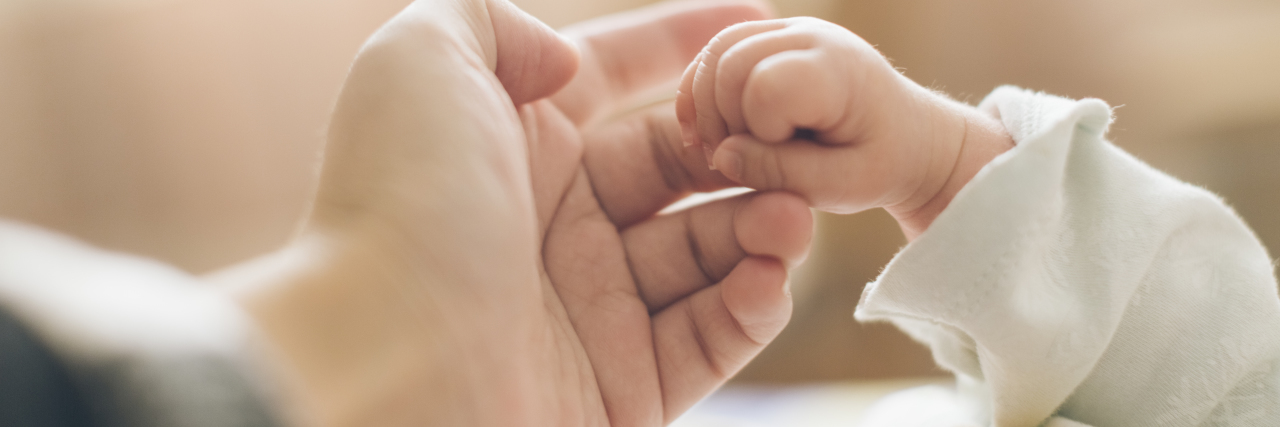Parenting a Child With Complex Medical Needs Is Not a Contest
Heart Dad and Pediatric Congenital Heart Association (PCHA) Blogger, Chris Perez, talks about the tendency to compare our journeys to those of others and his struggle to move past judgment.
My friends, this is a challenging post. It’s something I’ve struggled with from time to time and something I’ve seen and heard from others, too (not to judge).
I remember the day pretty clearly: someone I worked with at the time came into my office to talk something work-related. As I was looking up what she needed, she asked how everything was going at home with Nolan. I was a bit taken aback at first because we were months into this incredibly difficult journey and it was the first time she’d ever asked about him. At this point in my son’s life, managing his health and watching how difficult life had become for him was a struggle. He was on a feeding tube, and we were up all hours of the night giving meds and trying to sort out the obnoxiously-beeping feeding pump. I wasn’t sleeping, I was fried, and it took everything in my power just to get to work, much less complete my tasks. Of course, I didn’t go into all that; I just talked about appointments, feeds, meds, therapies, etc. Then she said something along the lines of, “It just reminds me of when I had to take my daughter back to the hospital for a few days for jaundice and I just couldn’t handle it,” and then she started to cry. Outwardly, I remained passive. My brain, however, was like:
The nerve! The nerve! To quote the Grinch, “The unmitigated gaul!” I was flooded with this sense of anger, like “How dare she compare jaundice to what my son has been through? His chest was open; he was on a vent; at one point, he coded, for god’s sake! And you’re crying?!”
Since then, I’ve realized this tends to happen to me a lot: “you don’t know what tired is, bruh,” or “that’s not scary, this is scary.” It’s like I have some sort of measuring stick I use to compare people’s struggles against mine, and I also determine whether those are valid or not. It’s like a contest in which I win because my struggles are worse than yours. Yikes. That’s not cool, to be honest. Do you do it, too?
Now before I go on, I need to establish that this doesn’t make you some kind of failed or broken person. In fact, I’ve found these feelings are at their height when I’m feeling compassion fatigue.
But I also need to say this here, and say it loud: our struggles, traumas and challenges are not a contest! If it were a contest, what do you win? Is there some prize? No, because guess what – your struggle is still there. And when you dig deeper, there will almost always be someone with an even worse situation than you. OK, so open-heart surgeries definitely aren’t easy to handle, but what about the kids who are coming home with even more debilitating disabilities, or what about the families who lost their child? When I think of it that way, I feel terrible because while I’m raining down the “my trauma is worse than yours” attitude on others, I realize others can do that to me… and if they did, how would that make me feel? Pretty lousy.
So, what then?
Friends, I feel like the power we have over this kind of thinking is to use empathy. I write a lot about empathy because I think it’s critical to changing the world and helping our own mental health in the process (you can read more about it here). Oftentimes, empathy gets confused with sympathy, but they’re different. Sympathy is that natural feeling you get when you see someone struggle or you hear some sad news. That’s the response we get from people when they hear how difficult our journey is… but it’s also the source of this “contest” we tend to hold with others we deem as not struggling as much as us. We want sympathy, but won’t give it. So why empathy, then? Empathy is understanding what someone is going through because you’ve been through it, or simply putting yourself in someone’s shoes to understand.
You see, we want people to do this for us, but why won’t we do it for others? Think about when you found out about your kid’s congenital heart defect (CHD). If you’re like me, you knew nothing about CHDs before that… it was the furthest thing from your mind. Your struggles, up to that point, were the most difficult things for you. And now that you’re climbing a different mountain, we sometimes don’t want to extend the same grace to the people who were in the same spot as us. So before I judge, maybe I need to stop and empathize with that person and realize that while our experiences aren’t exactly the same, I shouldn’t invalidate their stress over their struggles. Rather, I need to recognize that I’ve been there, too, and I should seek to understand. I need to do better about saying things like, “Wow, that sounds really difficult and it’s scary when are kids go through tough times, right?” Give it a try and see how that feels; I know I will.
The life we lead is challenging, there’s no doubt about it. But it’s also not a contest. When you’re stressed, scared, tired and at the end of your rope, don’t lash out at people, even though it may temporarily feel good to do so. Rather, practice some empathy and work towards building a community of people who care for each other, no matter what you’re going through.
Getty Images photo via Deng Qiufeng.

